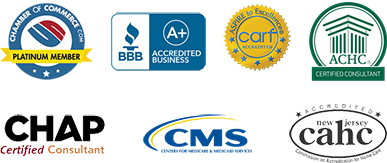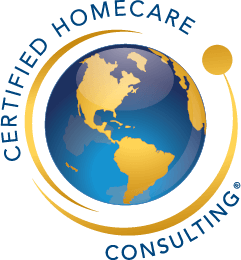How does a home health agency get paid?
Healthcare business resources for your growing business.

How does home health agency get paid?
Starting a home health care agency can be filled with many questions. How does a home health agency get paid? Depending on what services are provided, insurance enrollments, and private pay patients. Starting business planning is the key to being successful and determine all the different pay sources that are available to a home health care agency. Home health agency payors will request all the information that is collect from the business plan. These topics are going to be covered in this article to help build a better understanding of what goes into getting paid as a home health care agency.
Business Planning for a Home Health Care Agency
Business planning is an art that crafts the future of all businesses not just home health care agencies. Researching before investment is always the best option and the smartest as well. Building a business plan can seem daunting but it is just answering a series of questions that pertain to each home health care agency.
An example of a series of questions would be:
- What services are being provided?
- What makes the services provided stand out?
- What is the mission statement of the home health care agency?
- What do I call the home health agency? Is it one of a kind? Memorable? Easy to read and pronounce?
- What demographic will this marketed too?
- Where will it be?
- Does the census of that area target the demographic?
- How will the home health care agency advertise?
- How much is being charged for services and what are the competitors charging?
- Who is going to manage the day to day? Do I meet the requirements, or do I have to hire an Administrator or Registered Nurse to fill the role?
- Are there any moratoriums for Medicaid or license that will not allow application ?
- What is the agency’s starting capital ?
If a new business owner cannot answer these questions initially it may be time to speak to a professional(s). Organization and proper planning will make the difference between a successful home health care agency and one that will fail.
What Payment options can a new home health care agency apply for?
Researching this topic is quite a task as the in some states the possibilities are endless and in others it’s not the case.
Private pay is always an option and sometimes the only option but this is more for independently wealthy or people who have a great reimbursement plan for when the money follows the patient.
Medicare is a federally funded insurance for people over 65 that is a viable option if you have the money to go through the process.
Medicaid is state and federally funded insurance for everyone no matter the age and is usually the most sought after but not all states need new providers and have moratoriums in place or a special bidding process that can be harder for new agencies to break into and be successful.
Third Party Private insurances which are what most people would attain from their employers, purchased as supplemental insurance or Workman’s compensation claims through an insurance. These insurance providers may require Medicare enrollment prior to working with new agencies and often have strict enrollment processes if they are taking on new providers. They sometimes do one time special payment even if the provider is not enrolled but this is not the rule of thumb for all insurance companies.
Examples of Third Party :
- Blue Cross Blue Shield
- Aetna
- United Healthcare
State Funding or Grant processes in which the government allows a special program to be funded in a way that allows providers to provide services in a community setting.
How does a Home Health Agency get paid through Medicare?
How does a home health agency get paid through Medicare? Start by determining if you have the financial stability in order to get through the process. Licensed home health agency’s don’t get paid by insurances immediately once licensed it can take 11 – 18 months to get all the enrollments needed to bill insurance. Application to the corresponding Medicare Administrative Contractor (MAC) is important.
There are only 3 in the United States:
The application process will require that the agency meets capitalization requirements which can be anywhere from $35,000 to $150, 000 depending on where in the country the home health agency applies. Capitalization requirements are set to determine the ability of the home health agency to operate for at least 1 year. Reimbursement is the mode of payment which also means the home health agency will have to pay out 100% to service the client with payroll before getting paid/reimbursed.
Medicare enrollees also have to be accredited typically through a third-party accreditation organization of which 3 are nationally accepted.
- Joint Commission
- Community Health Accreditation Partner (CHAP)
- Accreditation Commission for Health Care (ACHC)
Accreditation organizations also cost money to go through their processes which can range from $9,800 or more.
State Accreditation is possible in some states but the wait times will vary and can take upwards of 2 to 3 years in some cases.
Home Health Agencies get paid only after they are accredited and accepted by the Center for Medicaid and Medicare Services and receive a provider transaction number (PTAN) also known as a CMS Certification Number (CCN). Once this happens, the provider may start billing CMS and other supplementary insurances working with CMS to obtain reimbursement.
How does a Home Health Agency get paid through Medicaid?
How does a home health agency get paid through Medicaid ? This Question comes up quite a bit and it’s all about enrollment availability. State agencies have their own requirements and an application for services must be submitted with fees if applicable. States requirements will vary from state to state but the same thing is usually a constant they want to see that an agency is Medicare certified in most instances. Managed Care Organizations sometimes also are involved and pre set rates, in some cases the reimbursements rates are low and can be harder to make a profit but in others it is fairly based. Contracting with the state Medicaid system is never a bad idea as you can services more patients this way and open up communication with the surrounding community.
Find out more by contacting us so we can go over what your options are for your state!
How does a Home Health Agency get paid with out losing money?
How does a home health care agency generate income? Following the steps laid out will greatly help but the biggest part of everything is what reimbursement programs are available to home health care agencies. Private pay is cash for services provided but not everyone is independently wealthy can afford paying for services up to $15-135 dollars an hour. National Averages put the income rations to about $24 an hour for home health care agencies. Health insurance payments will be most common as it will generate 65-75 percent of all revenue. Home Health Care Agencies cannot simply bill insurance without becoming an enrolled provider with each different insurance carrier. Each insurance company whether it is considered state, federal or private will pay different rates and want a signed contract to complete the enrollments. Insurances can bill back money for claims that are not filled out correctly and cause the agency to have to rebill and follow up to obtain the money owed. These processes can be cumbersome if the agency has never acquired enrollments. Billing should always be done by a professional even if the agency should have to pay a separate arrangement for a billing company to assist, they usually only consume 2% of revenue at best. Never leave money on the table by missing the opportunity to bill for services and supplies that the insurances will cover.
Profitability of a Home Health Care Agency
Profitability is what makes it all worth it at the end for a home health care agency with the fringe benefit of providing a quality service to the community. Organizations often prioritize how they will make the most money by proper assessment of the current environment and opportunities. There is a formula that is used to determine profitability which is: “income – expense = Profit/Loss”. The average of $24 dollars for services with the overhead and payroll average being about $16-17 per hour leaves $7-8 dollars profit per hour which means it is approximately 33% percent profit ratio. Service prices with vary and so will overhead so this is just an estimate but from this formula the home health care agency can deduce how much profit will be generated from billable hours.
Examples:
- 40 Billable hours X $24 = $960 x .33 = $316.80
- 80 Billable hours X $24 = $1920 x .33 = $633.60
- 120 Billable hours X $24 = $2880 x .33 = $950.40
- 160 Billable hours X $24 = $3840 x .33 = $1267.20
- 200 Billable hours X $24 = $4800 x .33 = $1584.00
Obviously, the key is billable hours, this will vary from patient to patient which is deduced from the doctors’ orders for services needed. The home health care agency should have a proper intake system which will be able to tell whether the services will be profitable or not. Levels of services will determine the amount of billable hour available.
Examples:
- Companion services usually average bout 9-12 hours per week
- Personal Care Services with iADL’s (adult daily living services) average 15-20 hours per week
- Full range of services can be as much as 30-44 hours per week.
Home Health Care Agency’s do have a decent profit margin and can be worth the worth the investment if they are properly structured and the overhead and payroll are aligned with the income ratios. Averaging everything together would put each client at about 26 hours per week. The number of clients, also known as the census, will be the final number example.
Examples profit per week
- 50 Clients x 26hrs = 1,300hrs x $24.00 = $31,200 x .33 = $10,296
- 100 Clients x 26hrs = 2,600hrs x $24.00 = $62,400 x .33 = $20,592
- 150 Clients x 26hrs = 3,900hrs x $24.00 = $93,600 x .33 = $30,888
- 200 Clients x 26hrs = 5,200hrs x $24.00 = $124,800 x .33 = $41,184
Consultation for a Home Health Care Agency
Hiring professional helps can make a world of difference and take out the worry of prolonging the processes which will cost more money than hiring professionals. Certified’s home health care consultants know the process, have working relationships with state officials, and will greatly reduce the amount of time for licensing and certification. Building professional marketing tools, proper implementation of business planning, and setting the home health care agency up for success is what we do. Call us today to find out more about your state.

